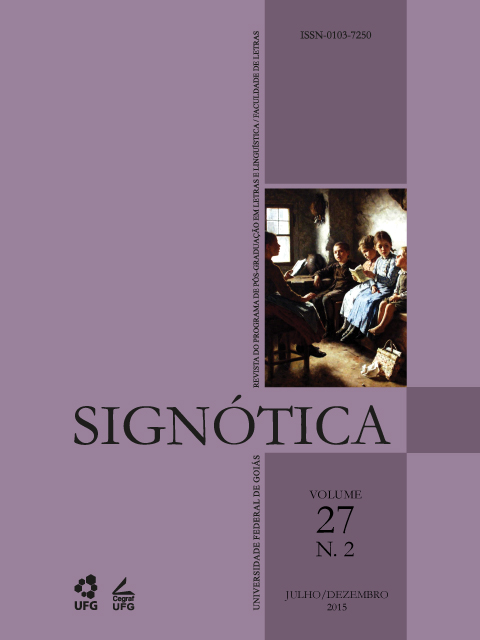Practices and Representations of the work with writing in rural schools
DOI:
https://doi.org/10.5216/sig.v27i2.30807Keywords:
Writing, Representations, Rural teachers.Abstract
This paper analyzes, in the speeches of four teachers froma primary rural school, representations constructed by them about their work with writing in school. The research is based on studies that conceive teachers’narratives and reports as spaces catalysts of self-training (Goodson, 2000; NÓVOA, 2000; Kramer, 2006). We considered as an empirical material of analysis the reports written by the teachers, interviews with the same teachers after the submissionof their reports,as well as recorded and transcribed classes. Data analysis lead us to realizethat the work with writing developed by the group of teachers responds to expectations that they have about this practice in human development.However, such expectations do not make the theoretical anchors explicit,which guide the work with the language, suggesting to us that teachers’ education should be continuous and the life narratives may constitute valuable tools of self-training, since the classroom reality requires redefinition and projections of new learningfrom the teacher’s own voice, regarding historically producedknowledge.Downloads
Download data is not yet available.
Downloads
Published
2015-12-22
How to Cite
RIBEIRO, Nilsa Brito; SOUZA, Ana Caroline Silva. Practices and Representations of the work with writing in rural schools. Signótica, Goiânia, v. 27, n. 2, p. 537–564, 2015. DOI: 10.5216/sig.v27i2.30807. Disponível em: https://revistas.ufg.br/sig/article/view/30807. Acesso em: 10 feb. 2026.
Issue
Section
Article
License
Author (s) authorize Signótica to publish an article, if accepted, signing its contribution as original and not submitted to another publisher for publication. In case of acceptance and publication, Signótica's articles are Creative Comons BY-NC-ND (Attribution + Non-Commercial + Non-Derivatives)





1.png)





